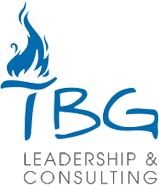One of the key virtues of being an extreme leader is courage. We all know that, especially when assessing leadership of others. But what about our own leadership? How courageous are we? According to the dictionary courage is defined as:
“The mental or moral strength to venture, persevere, and withstand danger, fear, or difficulty.”
Nowadays, everyone seems to be called upon to exhibit some form courage everyday. This includes the courage to say “no” when it’s easier to say “yes” or nothing at all. To engage in a prickly conversation filled with uncertainty and unclear outcomes. The courage to go on that morning run, when your body, may say “stay in this warm bed!” Courage to eat a nourishing meal, versus succumbing to appetite and eating 3 slices of pizza. The courage to tell your boss that you are not comfortable with his/her leadership. The courage to sit down with your spouse and have a consistent dialogue about the family budget. The courage to read a book, versus looking at a mindless television program. And even the courage to go home and be with the kids, versus working way into the night on a work project. Yes, we are all going to have to demonstrate courage, practically on a daily basis, or not!
The exercise of courage creates opportunities for all of us, physically, mentally, relationally, and spiritually. Whether or not we have the emotional fortitude to access courage when required will depend how much exercise and development we have given it. Let me suggest two ways to build up courage reserves, so when the cost is high, there is enough courage equity to push through:
Making and keeping promises. Well, I know all you are tired of hearing that from me! LOL! However, I will continue to cite it, because of its potential to reap so much benefit in building relationships, and at the same time, strengthens courage.
Being vulnerable. Again, such a simple concept, however rarely used. The research is clear, most notability done by Dr. Brenè Brown, exercising vulnerability as a leader, has the potential to fortify trust and engagement in “followers.”
As a final note, becoming an extreme leader requires letting go of the past. The English word "leadership" originates in the ancient root leith, which meant "to go forth and die,"... I would add that to be an extraordinary leader, one must “kill off” old habits, thinking patterns, ways of doing things. All of which takes a measure of courage. How about you, where are your courage challenges?
This Week’s Practice:
Look for three opportunities to “practice” courage this week. It can be with a friend, foe, business associate, boss, or significant other.


Recent Comments